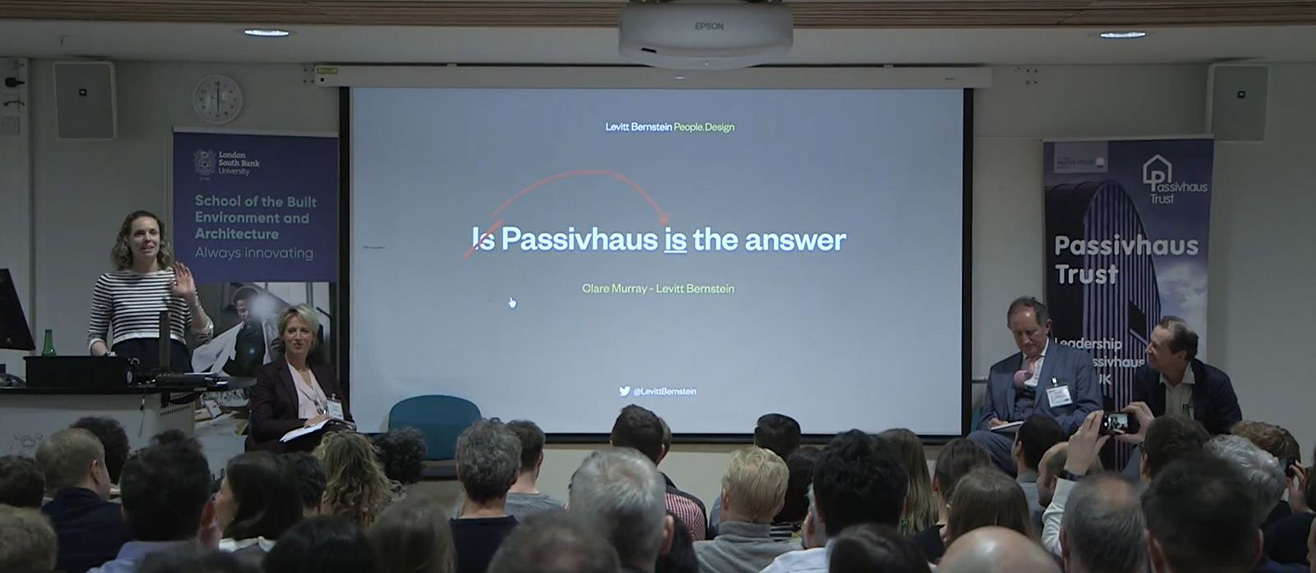
Climate Emergency Debate Series
An exciting series of Climate Emergency panel debates, led by LSBU’s School of Architecture and the Built Environment (BEA), addressing some of the more challenging climate change issues faced by the construction and housing sectorsAn exciting series of Climate Emergency panel debates, led by LSBU’s School of Architecture and the Built Environment (BEA), addressed some of the more challenging climate change issues faced by the construction and housing sectors. It attracted top speakers and a broad range of participants from across academia, industry, government and beyond in the UK and overseas.
An exciting series of climate emergency panel debates launched in January 2020, was led by LSBU’s School of the Built Environment and Architecture (BEA). The thought provoking and challenging debates are designed to address the climate change challenges faced by the construction and housing sectors.
Gathering leading industry experts, often on different sides of a debate, these lively discussions took on topics such as ‘Is Passivhaus the Answer?’ (January 2020) ‘Go Big or Go Home – tackling retrofit in a Climate Emergency’ (September 2020) and ‘The Heat Is On – the race to replace gas in a Climate Emergency” (January 2021).
By taking the lead in organising and hosting the climate emergency debate series, BEA demonstrated the university’s commitment to combatting the global environmental crisis by drawing together stakeholders to discuss real world problems and propose real world solutions. It also sought to nurture among students a culture of debate.
Each panel discussion in the series focused on a different climate change-related theme within the built environment – from reducing emissions from social housing and new builds in the housing sector, the fiscal landscape and finance, and industry workforce reform, to the myriad systemic changes needed to decarbonise the UK’s housing stock.
Kicking off the series, in the first debate, the panellists were charged with debating the topic whether the popular, energy efficient, international building standard, ‘Passivhaus’, could be the answer to combatting the UK’s challenge of meeting Net Zero Carbon targets by reducing emissions from new builds. The audience, crammed in the auditorium for the live event, before the spectre of COVID, voted overwhelmingly for Passivhaus to be adopted as a working standard across the industry.
A key element of the debate series was guiding audiences not just to engage with a subject in depth, but also take practical solutions back into their workplaces. In his closing statement, Andy Ford, LSBU’s Professor of Building Systems Engineering and chair of the first debate, echoed the mood of the room, when he said: “We are facing a real climate emergency. The time for talking is over. Our sector urgently needs to enact change.
“For too long the built environment sector has failed to pull its weight. Financial and political crises have also hindered progress in this area. That’s why LSBU’s Climate Emergency Debate series is about action. Nothing must derail our renewed quest to decarbonise the built environment.”
Our September 2020 online event, ‘Go Big or Go Home – tackling retrofit in a Climate Emergency’ the first in the post-COVID environment, drew participants from around the world. We heard from a panel of esteemed speakers who were leading the retrofit charge – Retrofit Wales, Scotland and closer to home, the challenges facing the Greater London Authority (GLA) as it planned to decarbonise the capital’s housing stock. Other panellists shared in-depth research into the topics, Optimising Retrofit Programmes and Labour Market Reform which are pivotal to the success of any large-scale retrofit scheme.
The response to this second event in the series was overwhelming, proving that the ‘new’ online formula worked to everyone’s advantage. More importantly, workstreams and partnerships arising from the debate inSeptember 2020 are still bearing fruit, with participants from LSBU and other academic institutions, government bodies and local authorities collaborating to accelerate the pace of change in the face of intermittent top-down support for retrofit measures.
The intention with this debate series was to inspire a culture of wider discussion between LSBU staff members and students, practitioners and advocates of the built environment, in order to catalyse the change the world needs now. We would invite you to be part of the discussion, and part of that change.
Workstreams and partnerships arising from the debate series are continuing and yielding results, with participants from LSBU and other academic institutions, government organisations and local authorities working together to accelerate the pace of change in retrofitting. The LSBU staff members collaborated with senior staff members of the then Department for Business, Energy and Industrial Strategy (BEIS) to decide on the topic, select the speakers and organise one of the events.
Watch all the debates on LSBU's Youtube channel.